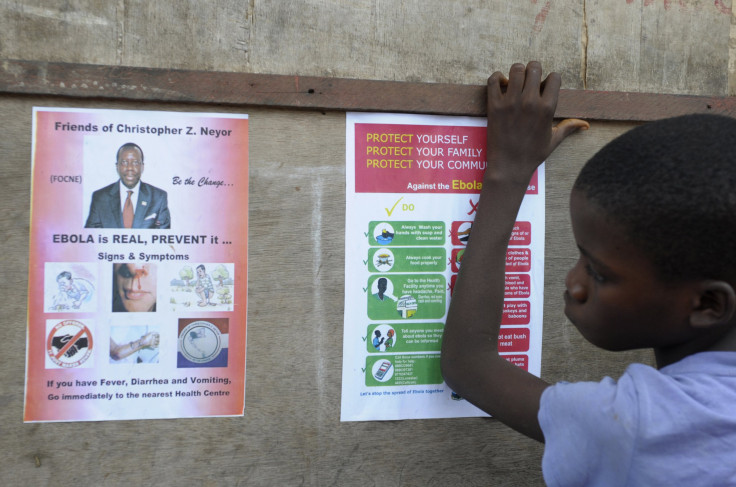Liberia's President Ellen Johnson Sirleaf sacks 10 officials told to return to fight Ebola

MONROVIA (Reuters) - Liberian President Ellen Johnson Sirleaf has sacked 10 senior officials because they failed to heed a warning to return from overseas travel to help the government's fight against an Ebola epidemic that has killed at least 1,100 Liberians.
The officials, who include six assistant ministers, two deputy ministers and two commissioners, were dismissed with immediate effect for being "out of the country without an excuse," according to a statement from the president's office.
They were initially told in August to return to Liberia.
"These government officials showed insensitivity to our national tragedy and disregard for authority," said the statement released late on Saturday. It did not make clear what role the government expected the officials to play in the response to the crisis, or why they were out of the country.
The contagious, haemorrhagic fever was first discovered in eastern Guinea in March and has since killed more than 2,400 people, mostly in Liberia, Sierra Leone and Guinea, making it the worst Ebola outbreak the world has seen.
The World Health Organization (WHO) has warned that the epidemic is spreading exponentially in Liberia, where more than half of the deaths have been recorded. It has said that thousands are at risk of contagion in the coming weeks.
Sirleaf on Saturday appealed to U.S. President Barack Obama for urgent aid in tackling Ebola.
The disease has taken a particularly heavy toll on healthcare workers who have stationed themselves on the front lines of the fight, operating in fragile healthcare systems that have been stretched to the breaking point.
EVACUATION REQUEST
The first Sierra Leonean female doctor to be diagnosed with Ebola died on Sunday, two government sources said. Her death adds to the toll of 144 healthcare workers who have died in Guinea, Sierra Leone and Liberia, according to Sept. 7 figures from the WHO.
Olivette Buck was head of the Lumley Health Centre in a densely populated suburb west of the capital Freetown. She tested positive for the virus on Tuesday, apparently contracting it as she treated an Ebola patient.
"I can confirm that doctor Olivette Buck died between last night and this morning," Jarrah Kawusu-Konteh, of the State House communication unit, told Reuters.
Doctors are held in high esteem in countries like Sierra Leone that have a low percentage of trained medical professionals per head of population.
Buck was the fourth Sierra Leonean doctor to die of Ebola and her illness prompted calls for her evacuation to the West. Civil society group WeCare SL and the Sierra Leone Medical and Dental Association both urged the government to step in.
President Ernest Bai Koroma also wrote to the WHO on Friday requesting evacuation, according to a letter seen by Reuters.
The WHO can only evacuate people it has deployed and the aim was to get them to treatment close to their families, said a WHO spokesman, adding that it had evacuated two people so far.
"We simply are not in a position to evacuate all health workers who get infected in those countries. What is needed is to have enough treatment in those countries so these health workers can have appropriate treatment, said Tarik Jasarevic.
The U.N. agency is appealing to its U.N. partners as well as governments, non-governmental organisations to provide help, the spokesman said by telephone from Geneva.
By James Harding Giahyue
(Additional reporting by Umaru Fofana in Freetown and Matthew Mpoke Bigg in Accra; Writing by Matthew Mpoke Bigg; Editing by Larry King)



























